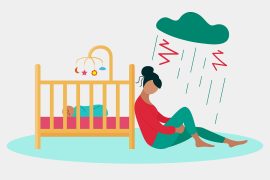Introduction
Pregnancy is a time of joy and anticipation, but it also brings a heightened sense of responsibility, particularly regarding diet and nutrition. What you eat not only affects your health but also plays a crucial role in your baby’s development. This guide aims to provide essential dietary tips for a safe and healthy pregnancy. Remember, it’s always best to consult with your healthcare provider for personalized advice.
The Impact of Caffeine
Caffeine, commonly found in coffee, tea, and some soft drinks, can have significant effects on the uterus and placenta. It’s believed to cause constriction of blood vessels, potentially reducing blood supply to the fetus and inhibiting growth. While completely cutting out caffeine might be challenging, it’s advisable to limit intake to about one small cup of coffee per day.
Liver and Vitamin A
Liver and liver products are rich in retinol, a form of vitamin A. While vitamin A is essential, excessive amounts can be harmful to your baby. Pregnant women should be cautious and avoid high retinol foods, including supplements like cod liver oil.
Alcohol Consumption During Pregnancy
No level of alcohol is considered safe during pregnancy. Alcohol consumption can lead to miscarriage, premature birth, and low birth weight. Post-birth, it can affect the baby’s health and development. It’s best to avoid alcohol entirely to ensure your baby’s safety.
Herbal Teas and Pregnancy
Herbal teas might seem harmless, but they can have unpredictable effects during pregnancy. The composition of herbs can vary greatly, and their impact on pregnancy isn’t always clear. Always consult your doctor before including herbal teas in your diet.
Raw Meat and Pregnancy
Consuming undercooked or raw meat during pregnancy can be risky due to the potential presence of harmful bacteria. To ensure safety, all meat should be well-cooked. This includes avoiding delicacies like rare steaks and certain traditional dishes that use raw meat.
The Debate Over Pineapples
Pineapples are nutritious but have been a topic of debate in pregnancy. They contain bromelain, which some believe could lead to uterine contractions. While the risk is likely low, some prefer to err on the side of caution and limit pineapple intake during pregnancy.
Sesame Seeds: To Eat or Not to Eat
Sesame seeds, found in many recipes, are believed by some to raise body temperature and potentially harm the baby. They also pose a salmonella risk. It’s advisable to limit sesame seed consumption during pregnancy.
Seafood and Mercury Levels
While fish is a great source of nutrients, pregnant women should be mindful of mercury levels. High-mercury fish like swordfish, shark, and some types of tuna should be avoided. Opt for low-mercury options like catfish, but always ensure they are well-cooked.
The Risks of Unripe Papaya
Unripe papayas contain latex, which can cause uterine contractions and lead to early labor. They also contain papain, which might induce labor. It’s safer to avoid unripe papayas during pregnancy.
Aloe Vera: A Pregnancy No-No
Aloe vera, known for its health benefits, can be harmful during pregnancy. It contains anthraquinones, which can cause uterine contractions and affect blood glucose levels. Avoid consuming aloe vera in any form during pregnancy.
Eggs: Cooking Them Right
Eggs are a nutritious choice but must be fully cooked or pasteurized to avoid the risk of Salmonella. Avoid dishes with raw or undercooked eggs, such as certain homemade ice creams, mayonnaise, and mousse.
Lettuce and Food Safety
Lettuce must be thoroughly washed to remove parasites and bacteria. Unwashed lettuce can lead to illnesses like listeriosis and toxoplasmosis. Be cautious with pre-packaged salads and always opt for freshly washed lettuce.
Conclusion
Navigating your diet during pregnancy can be challenging, but it’s crucial for the health of both mother and baby. While this guide covers essential tips, it’s not exhaustive. Always seek guidance from healthcare professionals for a diet plan that’s best for you.
Your experiences and knowledge are valuable! Feel free to share your pregnancy diet tips or ask questions in the comments below. Your insights could be a great help to other expecting mothers.






